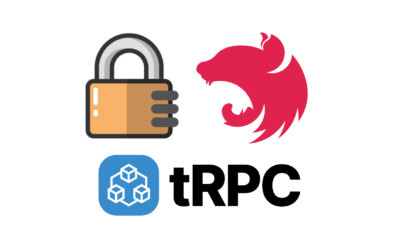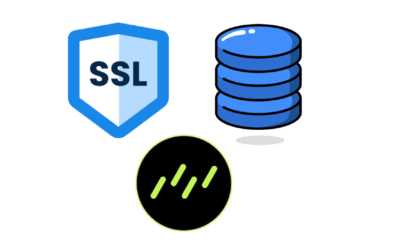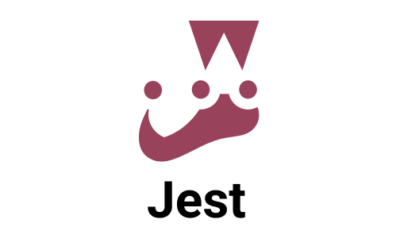Type-Safe Full-Stack Development: Shared Types Between TanStack Router and NestJS with Zod
In this guide, we’ll explore how to create a shared types package in a Turborepo monorepo, leveraging Zod schemas for both validation and type generation, integrated seamlessly with NestJS and TanStack Router.
Implementing the Strategy Pattern in NestJS
Learn how the Strategy Pattern helps you write cleaner, more modular NestJS code by applying the Dependency Inversion Principle.
Instead of hardcoding logic with endless conditionals, you’ll see how to design flexible, testable strategies that keep your core business logic decoupled from implementation details.
Implementing Idempotency in NestJS with an Interceptor
When building APIs, especially for payments or operations that modify state, you want to avoid executing the same request multiple times if the client retries.
In this post, we’ll walk through how to bring that Stripe-style idempotency pattern into a NestJS application using an Interceptor.
How to Integrate Better-Auth with NestJS + tRPC
Integrating authentication into a NestJS + tRPC project doesn’t have to be painful.
In this guide, we’ll walk through wiring up Better-Auth with nestjs-trpc so every API call can automatically resolve the current user from secure cookies.
Add SSL to Drizzle + NestJS for AWS RDS (Postgres)
Connecting to AWS RDS without SSL leaves your database traffic exposed.
This guide shows how to secure Drizzle ORM + NestJS with TLS covering Drizzle Kit setup, a production-ready DatabaseModule, and deployment tips for Docker and Kubernetes.
Building a NestJS App with SWC: A Step-by-Step Guide
Supercharge your NestJS development by replacing tsc with SWC — a Rust-based TypeScript compiler that’s up to 20× faster and more memory-efficient.
This hands-on guide for experienced developers walks you through setting up a standalone NestJS app with SWC, complete with configuration tips, performance benchmarks, and Docker deployment strategies.
Express vs Fastify: A Performance Benchmark Comparison
In this detailed performance benchmark, we put Express and Fastify head-to-head in a real-world test using Autocannon. Our results showed Fastify handling over twice the number of requests per second and delivering significantly lower latency compared to Express.
Dive into the analysis to discover why Fastify consistently outperforms Express and understand when each framework might be the right choice for your Node.js applications.
Optimizing NestJS Performance with HTTP Keep-Alive
HTTP Keep-Alive is one of the easiest ways to boost performance in your NestJS apps. By reusing TCP connections for multiple requests, you can reduce latency, avoid port exhaustion, and handle higher throughput with less overhead.
In this post, we’ll explore how to enable and tune Keep-Alive in both NestJS servers and clients, including real-world best practices for high-performance APIs.
When to use Microservices in Node.js
Microservices offer scalability and flexibility, but they also introduce significant complexity, making them a poor fit for many Node.js applications.
The key is not to default to microservices but to adopt them when the trade-offs justify the benefits.
Speed Up Jest Test Suites with Sharding
Large test suites in Node.js and React projects can significantly slow down your continuous integration (CI) pipeline. Jest already runs tests in parallel on a single machine using worker processes, but for very large suites you may need to parallelize across multiple machines. Jest 28 introduced a new –shard option that makes it easy to split your test suite into chunks and run them concurrently on separate CI runners.
Building a Standalone NestJS Application for Web Scraping
NestJS is a versatile framework that can go beyond server-based applications. In this guide, we’ll focus on building a NestJS standalone application, showcasing how to utilize its modular structure and dependency injection to create a CLI-based tool for web scraping
Why Apache Pulsar is Better for Scaling Node.js Applications Than Kafka
When building Node.js applications that rely on message brokers for asynchronous communication, developers often face the challenge of choosing between Apache Kafka and Apache Pulsar. While both are excellent distributed messaging systems, Pulsar has distinct advantages when it comes to scaling Node.js applications.
This blog post explains why Pulsar’s architecture and features make it a better fit for the Node.js ecosystem compared to Kafka, especially for dynamic, horizontally scaled systems.
NestJS Custom Decorators
Learn to utilize custom decorators in NestJS to make your code cleaner & adhere to the single responsibility principle.
NestJS Domain Driven Design With Class Transformer
Learn how to implement domain driven design in NestJS with class-transformer & start writing cleaner, less complex code while also reducing bugs.
NestJS Factory Method Pattern
Learn how to implement the powerful factory method pattern in a NestJS application to keep your code clean & less complex.















